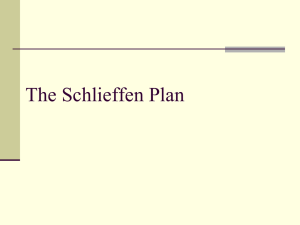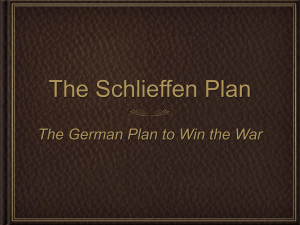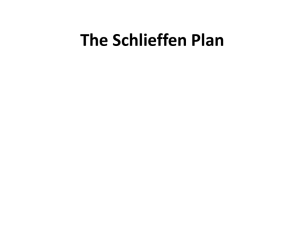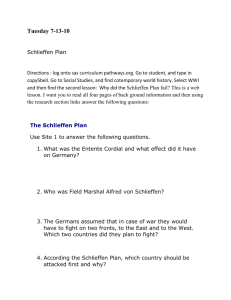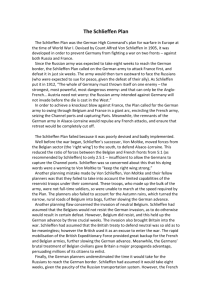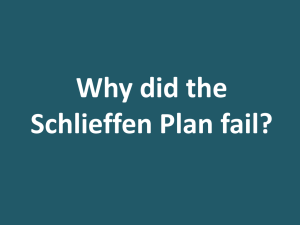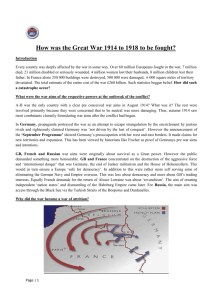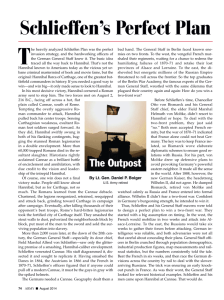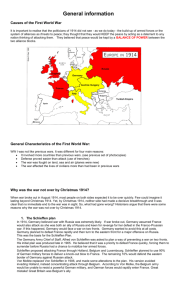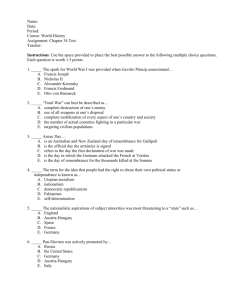The Schlieffen Plan summary.doc
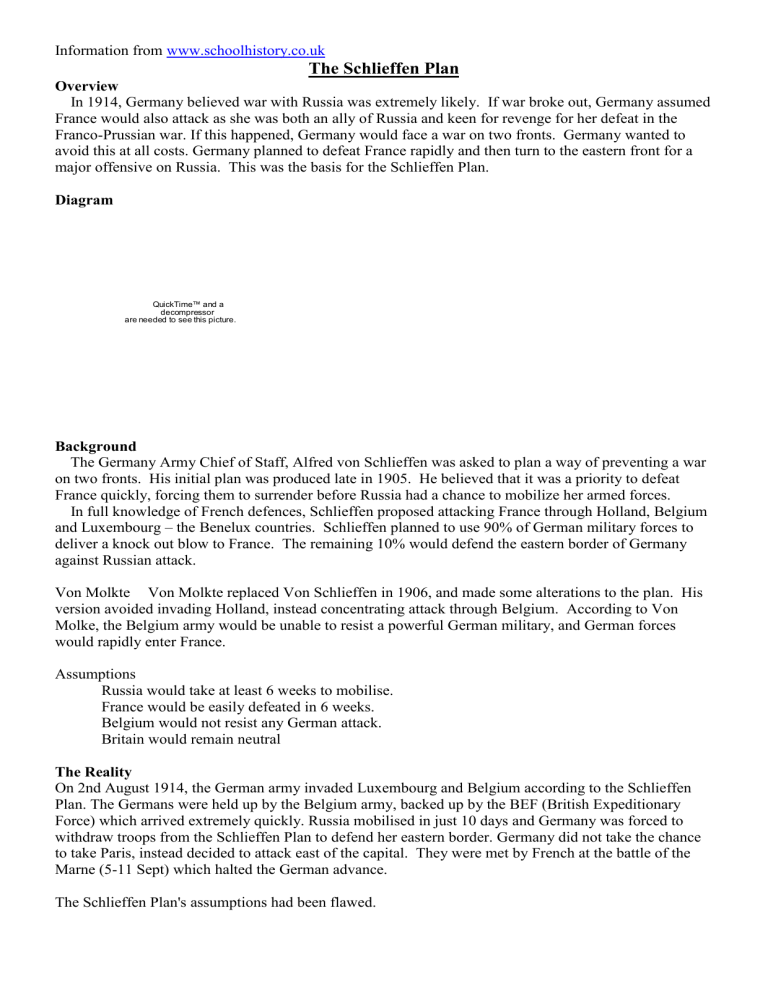
Information from www.schoolhistory.co.uk
The Schlieffen Plan
Overview
In 1914, Germany believed war with Russia was extremely likely. If war broke out, Germany assumed
France would also attack as she was both an ally of Russia and keen for revenge for her defeat in the
Franco-Prussian war. If this happened, Germany would face a war on two fronts. Germany wanted to avoid this at all costs. Germany planned to defeat France rapidly and then turn to the eastern front for a major offensive on Russia. This was the basis for the Schlieffen Plan.
Diagram
QuickTime™ and a
decompressor are needed to see this picture.
Background
The Germany Army Chief of Staff, Alfred von Schlieffen was asked to plan a way of preventing a war on two fronts. His initial plan was produced late in 1905. He believed that it was a priority to defeat
France quickly, forcing them to surrender before Russia had a chance to mobilize her armed forces.
In full knowledge of French defences, Schlieffen proposed attacking France through Holland, Belgium and Luxembourg – the Benelux countries. Schlieffen planned to use 90% of German military forces to deliver a knock out blow to France. The remaining 10% would defend the eastern border of Germany against Russian attack.
Von Molkte Von Molkte replaced Von Schlieffen in 1906, and made some alterations to the plan. His version avoided invading Holland, instead concentrating attack through Belgium. According to Von
Molke, the Belgium army would be unable to resist a powerful German military, and German forces would rapidly enter France.
Assumptions
Russia would take at least 6 weeks to mobilise.
France would be easily defeated in 6 weeks.
Belgium would not resist any German attack.
Britain would remain neutral
The Reality
On 2nd August 1914, the German army invaded Luxembourg and Belgium according to the Schlieffen
Plan. The Germans were held up by the Belgium army, backed up by the BEF (British Expeditionary
Force) which arrived extremely quickly. Russia mobilised in just 10 days and Germany was forced to withdraw troops from the Schlieffen Plan to defend her eastern border. Germany did not take the chance to take Paris, instead decided to attack east of the capital. They were met by French at the battle of the
Marne (5-11 Sept) which halted the German advance.
The Schlieffen Plan's assumptions had been flawed.
Information from www.schoolhistory.co.uk
The Schlieffen Plan
What was it? (Why? Aims? Strategy? How did it work?)
Why did it fail?
